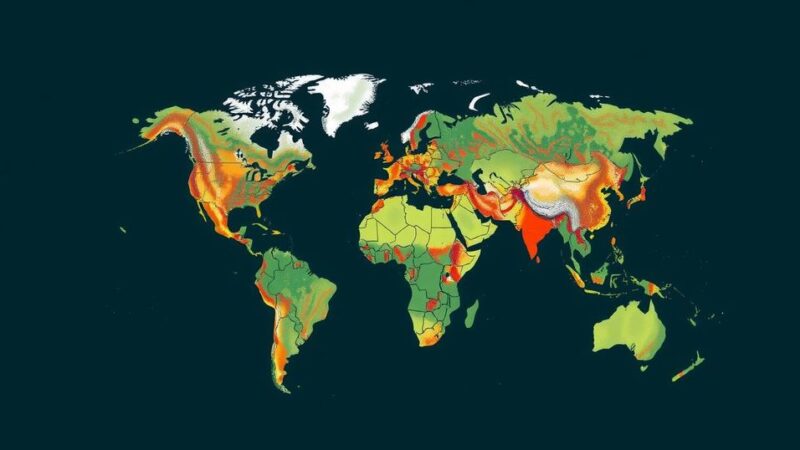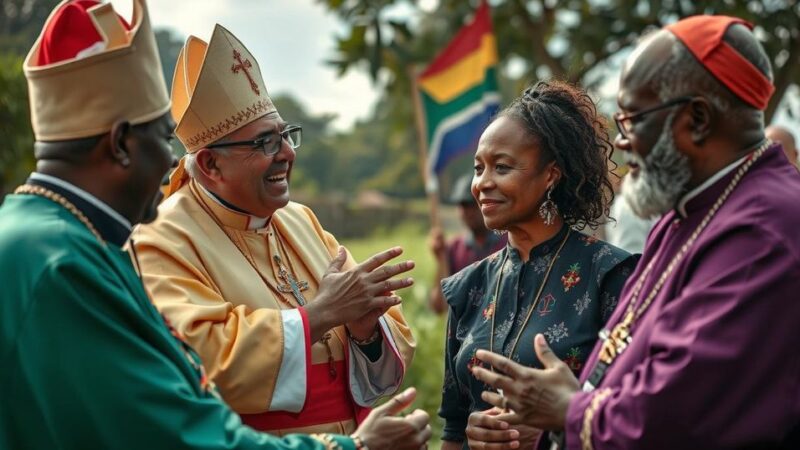The United States has recognized Edmundo Gonzalez as Venezuela’s president-elect following disputed elections on July 28. The change in U.S. policy marks an acknowledgment of democratic will, while criticisms arise from Venezuelan officials. Gonzalez has expressed appreciation for the support, yet Maduro continues to maintain control, dismissing such declarations as fraudulent.
The United States has officially recognized Edmundo Gonzalez, an opposition leader, as Venezuela’s president-elect following the contentious election held on July 28. Secretary of State Antony Blinken announced this development, emphasizing the importance of acknowledging the Venezuelan people’s choice, which he described as resounding. This decision marks a pivotal shift in U.S. policy regarding Venezuela, as prior to this recognition, the U.S. acknowledged Gonzalez’s electoral victory without designating him as president-elect.
The U.S. declaration reinforces the view of independent international observers who concluded that Gonzalez received more than 70% of the vote, while the Venezuelan authorities had declared incumbent Nicolas Maduro the winner amidst claims of electoral fraud. A spokesperson from the State Department affirmed that the opposition’s assertion of Gonzalez’s victory is supported by reliable voting statistics.
In response to the U.S. recognition, Gonzalez expressed gratitude, stating that this accord reflects the Venezuelan people’s aspiration for democratic change. Conversely, Venezuelan Foreign Minister Yvan Gil rebuked the U.S. stance, accusing Blinken of perpetuating a “ridiculous” narrative.
Despite these developments, Maduro continues to hold power in Venezuela, dismissing the opposition’s claims as false. Gonzalez, currently residing in Spain out of concern for his safety, has indicated plans to return to Venezuela for the presidential inauguration scheduled for January 10, 2024.
The recognition of Edmundo Gonzalez as the president-elect by the United States is a critical moment in the ongoing political strife in Venezuela. The controversial July 28 presidential election was marred by allegations of vote rigging, leading to international scrutiny. The U.S. and various global organizations have historically supported the Venezuelan opposition’s claims of electoral misconduct. Gonzalez’s ascendance is seen as a potential catalyst for democratic change within a country that has faced significant governmental challenges and repression under Maduro. The recognition comes amid a backdrop of international observers, including entities like the Carter Center and the United Nations, stating discrepancies in the reported election results by Venezuelan authorities. The acknowledgment from the U.S. not only validates the opposition’s claims but also represents a shift in geopolitical dynamics regarding Venezuela’s leadership.
In conclusion, the U.S. formal recognition of Edmundo Gonzalez as president-elect of Venezuela reflects a significant evolution in American foreign policy towards the crisis in Venezuelan governance. This acknowledgment underscores the widespread desire of the Venezuelan populace for democratic reform and stands in opposition to the current administration’s legitimacy. The response from both Gonzalez and the Venezuelan government illustrates the stark divisions present as the nation approaches a critical turning point in its political landscape.
Original Source: edition.cnn.com

